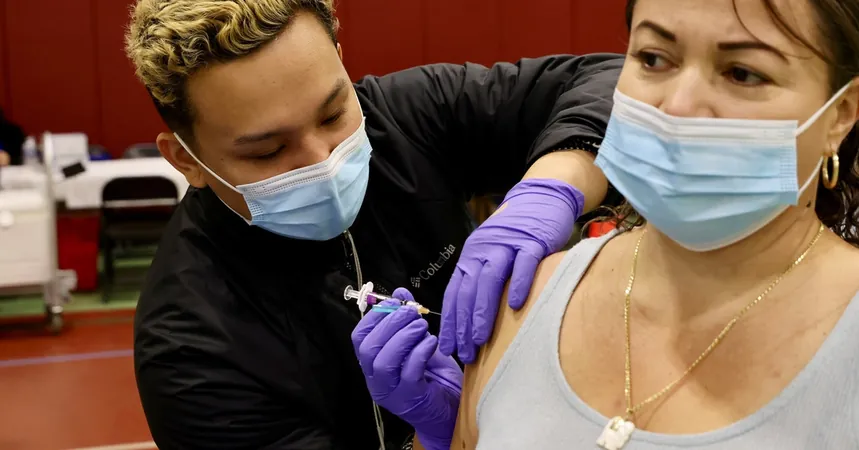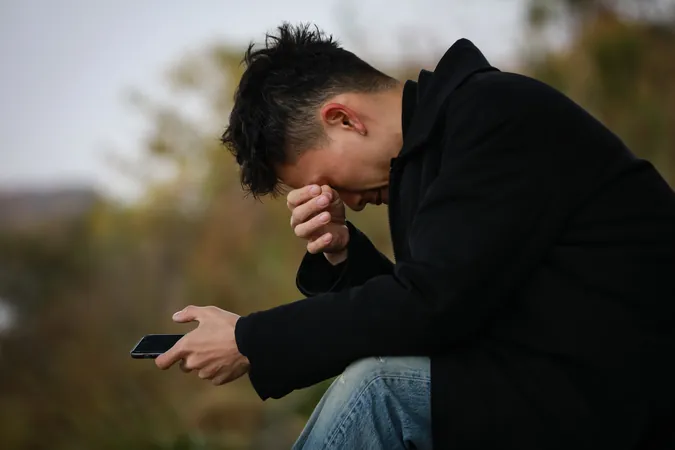
The Challenge of Vaccinating Against RSV: Overcoming Barriers to Ensure Equity
2024-10-04
Carina Marquez, an associate professor of medicine at the University of California, San Francisco, is a assertive advocate for preventive health care. Her enthusiasm was palpable when health authorities in the US and Europe approved the first vaccines for respiratory syncytial virus (RSV) last year. These vaccines offer promising potential to drastically lower the high numbers of hospitalizations and fatalities tied to RSV each year in the United States. However, the effectiveness of these vaccines hinges on ensuring that they reach the populations that need them most.
“It’s critically important to guarantee equal access for all,” Marquez states emphatically. “Inequities in vaccine access translate into inequities in hospitalizations and deaths.”
Currently, three RSV vaccines are available in the US: GSK’s Arexvy and Moderna’s mRESVIA, approved for use in older adults, along with Pfizer’s Abrysvo, which is available for older adults and pregnant women. Despite their approval, a troubling trend in vaccine uptake is already evident. Data from the Centers for Disease Control and Prevention (CDC) highlights disparities, showing that older Black and Hispanic adults are significantly less likely to receive the vaccine compared to their white counterparts. For example, among those aged 75 and older, only 19% of Hispanic individuals have been vaccinated this year, in contrast to 35% of white seniors, 31% of Asian seniors, and 24% of Black seniors.
This stark disparity is particularly concerning for Marquez, who has witnessed firsthand how unequal access to COVID-19 vaccines negatively impacted health outcomes for Latino and Black Americans during the pandemic. While research on racial disparities in RSV infections remains limited, existing evidence suggests that RSV affects Latino, Black, and Native American communities at younger ages compared to white Americans. “The time to act is now, especially in light of the mistrust or hesitancy that emerged following the COVID vaccine.”
To address these barriers, Marquez plans to launch a five-year study funded by the National Institutes of Health in October, aimed at understanding how to better motivate Latinos in San Francisco to get vaccinated. Preliminary research from her surveys indicates that while many in this community express interest in the RSV vaccine, there is also a strong demand for more information about it.
Diane Havlir, chief of the HIV and infectious diseases division at Zuckerberg San Francisco General Hospital and collaborator on the study, emphasizes the importance of tailoring vaccine outreach to accommodate cultural beliefs and practices. “Finding what works best is crucial, especially since this is a new vaccine for our elders.”
Marquez's research will incorporate comprehensive surveys that gather demographic data and specific vaccine safety concerns within the Latino community, which is known for its diversity. Her hypothesis suggests that older Latino adults might be more influenced by information shared through family, friends, and community organizations rather than traditional social media campaigns, which are more effective with younger populations. The research will explore whether encouragement from younger family members, like grandchildren, can motivate older relatives to get vaccinated, building on previous studies that highlight the power of personal connections in vaccination decisions.
As the RSV vaccine rollout continues, understanding and addressing the unique concerns and habits of various communities is paramount. Ensuring that everyone, particularly those who are most vulnerable, receives the vaccine can not only save lives but also diminish inequalities in healthcare outcomes. The task ahead is daunting, but with targeted efforts and community engagement, we can foster a future where vaccination rates reflect equity and accessibility for all.

 Brasil (PT)
Brasil (PT)
 Canada (EN)
Canada (EN)
 Chile (ES)
Chile (ES)
 España (ES)
España (ES)
 France (FR)
France (FR)
 Hong Kong (EN)
Hong Kong (EN)
 Italia (IT)
Italia (IT)
 日本 (JA)
日本 (JA)
 Magyarország (HU)
Magyarország (HU)
 Norge (NO)
Norge (NO)
 Polska (PL)
Polska (PL)
 Schweiz (DE)
Schweiz (DE)
 Singapore (EN)
Singapore (EN)
 Sverige (SV)
Sverige (SV)
 Suomi (FI)
Suomi (FI)
 Türkiye (TR)
Türkiye (TR)